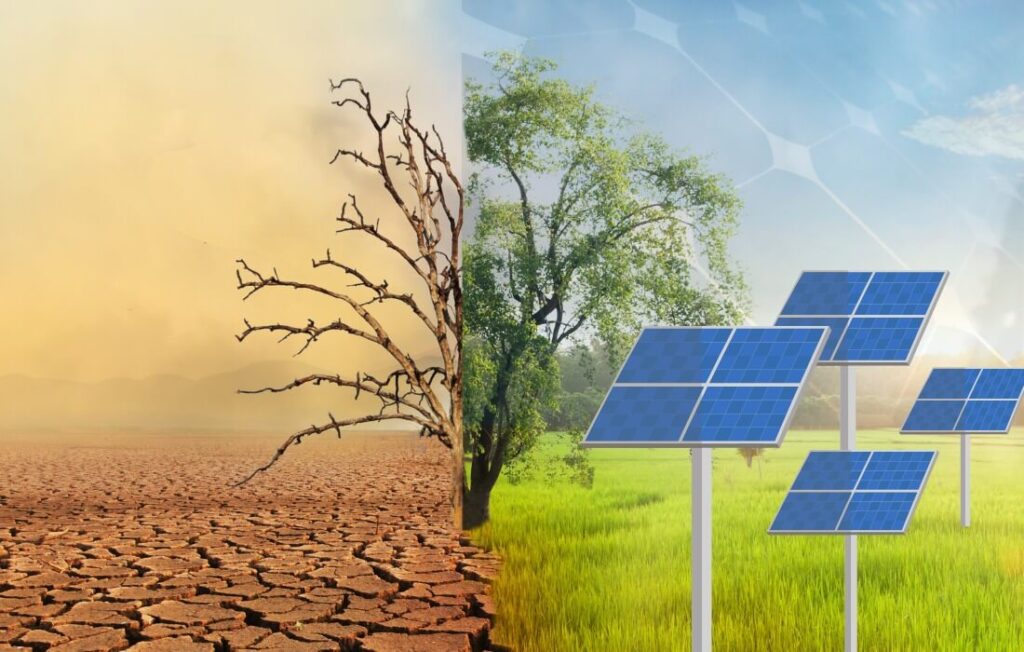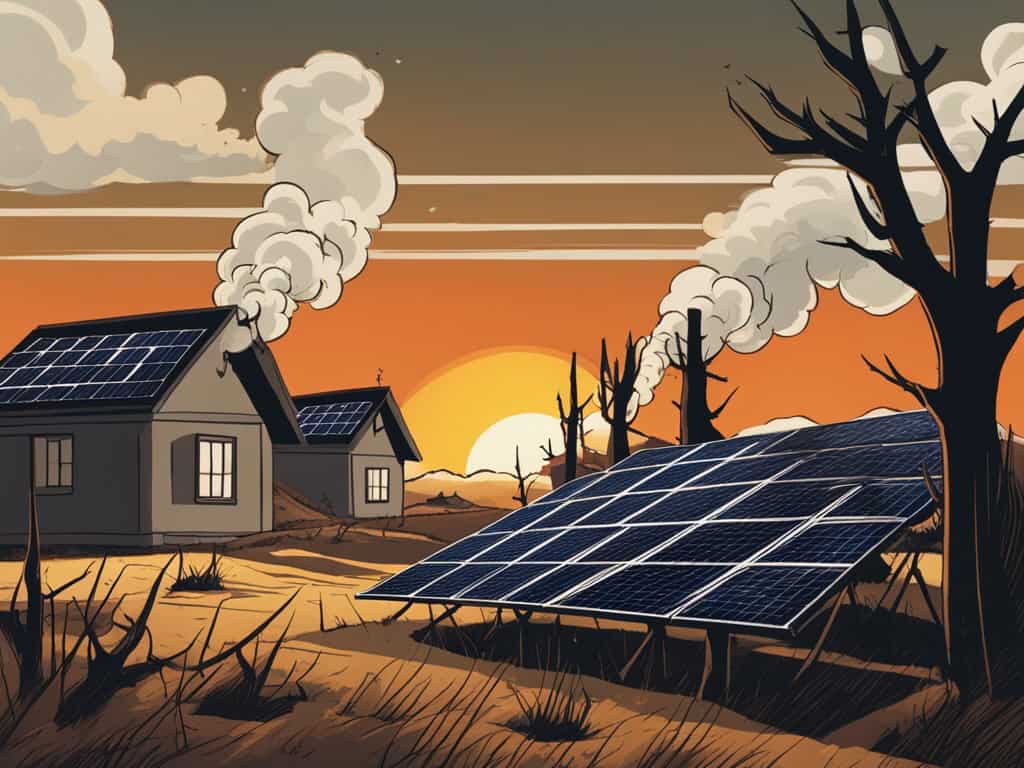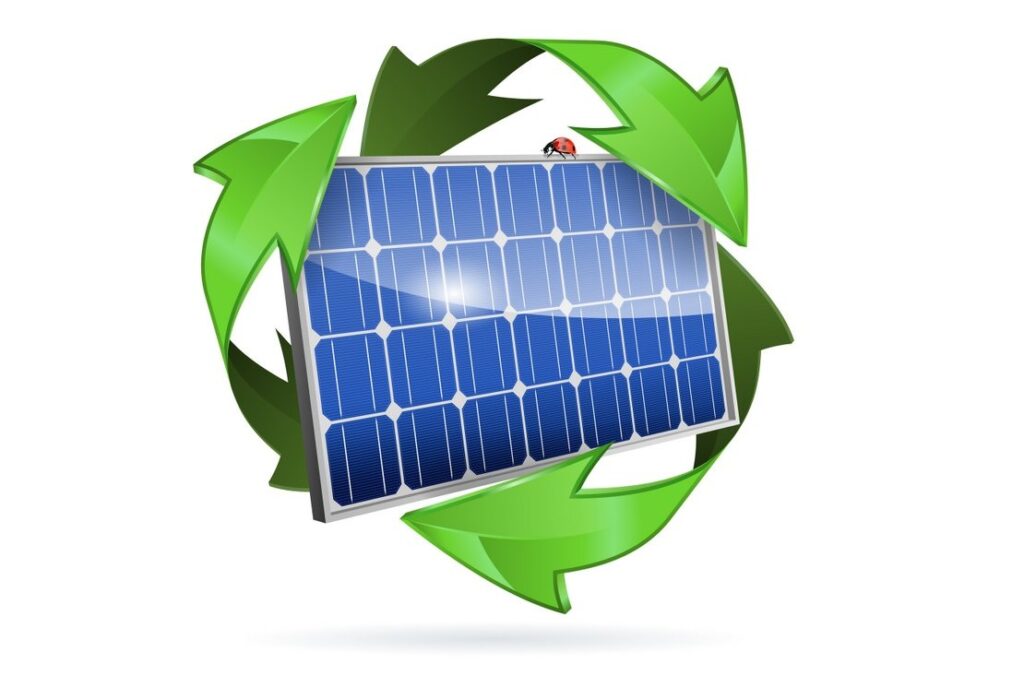
Wait… Is Going Solar Actually Good for the Environment? I’ve heard this question more times than I can count—and I’ll admit, it’s fair. Environmental Impact of Solar Production, with all the hype around green energy, some people are starting to ask, “Is solar panel production really as clean as it sounds?” There’s a growing wave of skepticism, especially on social media, where headlines like “Solar panels create more pollution than they prevent!” or “Solar isn’t sustainable after all!” grab attention.
But here’s the thing: while no technology is 100% impact-free, the long-term environmental benefits of solar far outweigh the costs of production. Let’s dive into the myths vs. facts of the environmental impact of solar production, especially from a Pakistani perspective.
Myth #1: Solar Panels Create More Pollution Than They Save
This one makes the rounds now and then, but let’s break it down with real numbers. Yes, manufacturing solar panels requires energy, raw materials, and some emissions, but…
Fact: Most panels repay their carbon footprint in 1.5 to 2.5 years. After that, they continue to produce clean, renewable electricity for 25+ years—without emitting greenhouse gases.
In Pakistan, where our grid electricity mostly comes from oil, gas, and coal, switching to solar drastically reduces your personal carbon footprint.

Myth #2: Solar Panel Materials Are Toxic and Harmful
There is valid concern among some people over materials such as lead and cadmium in particular types of panels. But here’s the context:
Fact: Modern panels (especially silicon-based ones, which dominate the market) are non-toxic and safe, with strict global and local regulations in place. Manufacturers are also investing in recycling technologies to make end-of-life panels more sustainable.
Well-known companies in Pakistan that comply with worldwide ISO and environmental compliance certifications include Longi, Canadian Solar, and JA Solar.
Myth #3: Solar Panels Can’t Be Recycled
You’ve probably heard the claim that old panels will pile up in landfills. It’s a half-truth at best.
Fact: About 90–95% of a solar panel can be recycled, including the aluminum frame, glass, and some silicon. While the recycling infrastructure is still growing (especially in developing countries), many developed nations already have systems in place. Pakistan is catching up fast with E-waste recycling awareness and corporate responsibility programs.

Let’s Talk About Energy Payback Time (EPBT)
If you’re serious about sustainability, you need to know about EPBT—the time it takes for a solar panel to generate the same amount of energy used to make it.
On average, modern panels take under 2 years to pay back their energy debt. Given that they last 25 to 30 years, you’re looking at decades of clean, free energy. That’s a solid investment in both your wallet and the planet.
The Bigger Picture: Why Pakistan Needs Solar Now
Pakistan is one of the top 10 most vulnerable countries to climate change. Rising temperatures, water stress, and erratic weather patterns are already affecting millions. Switching to solar isn’t just a nice idea—it’s a national necessity.
The National Electric Power Regulatory Authority (NEPRA) has been promoting rooftop solar and net metering as important solutions. In case you missed it, I recently broke down how net metering boosts your solar savings—check out that blog here.
Still Not Convinced? Let’s Do a Reality Check
Gasoline vs. Solar for 25 years:
- 1 car running on petrol produces ~5 tons of CO₂ per year.
- 1 solar-powered home avoids ~4–5 tons of CO₂ emissions annually.
Now imagine 10 million Pakistani homes switching to solar. That’s equivalent to removing over 40 million cars from the roads.
Solar’s Not Perfect—But It’s Still the Best Shot We’ve Got
Let’s be real—no energy solution is 100% clean. Even wind, hydro, and nuclear come with their environmental baggage. But solar is one of the least harmful, most scalable, and most empowering technologies we have today.
In the Pakistani context, where the grid is unreliable and fossil fuels dominate, solar is our fastest path to cleaner skies, quieter cities, and lower bills.
So the next time someone throws shade at solar, you can confidently say: “The facts speak for themselves.”







